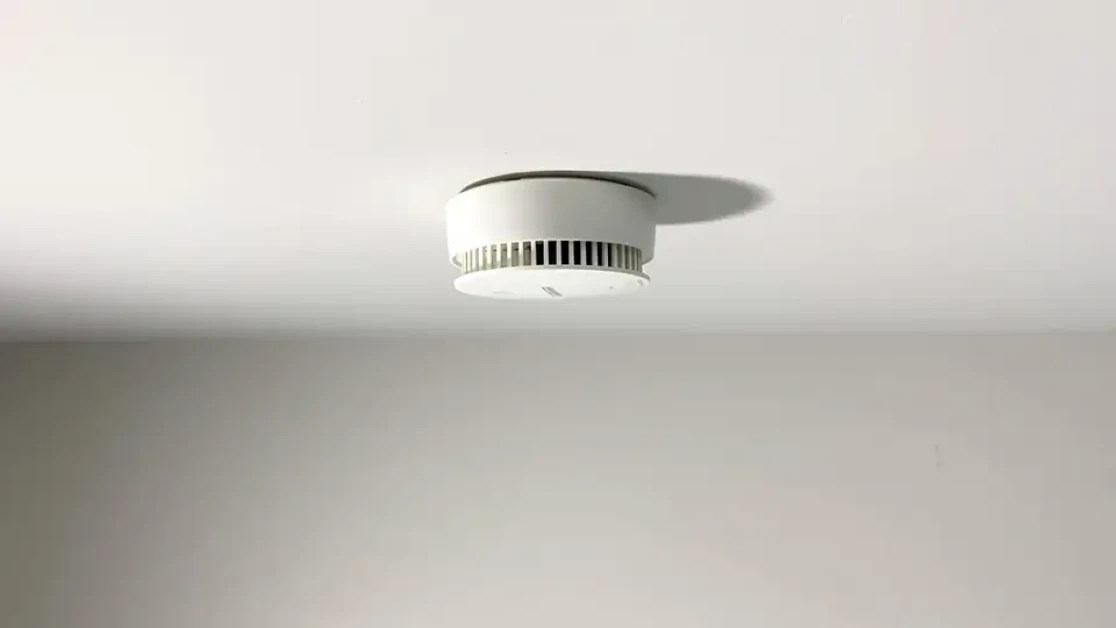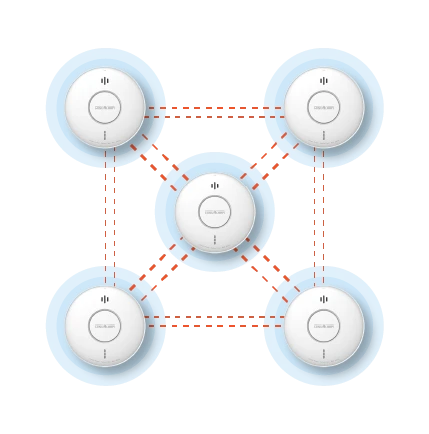
Need assistance?
Need Assistance? Call Us 0330 058 0630
Did You Know? We Sell Fire Alarm Systems as Complete Kits. Shop Now
31/10/2024 • by Alice P

There are various types of smoke alarms available for your home or premises. Smoke alarms can function either as standalone units or as part of an interconnected system, where multiple devices are linked to communicate with one another.
Both standalone and interlinking smoke alarms have their benefits. Before purchasing a smoke alarm, it is important to understand the benefits and differences between the two types of alarms and how they work.
A standalone smoke alarm functions as a single unit, usually powered by batteries. These smoke alarms tend to be relatively inexpensive. If you opt for battery powered devices then they are extremely easy to install in your home compared to mains-powered smoke alarms, which usually require an electrician for installation.
Unlike interlinked smoke alarms, in the event of a fire, a standalone smoke alarm will not sound the other alarms in your property. However, most standalone smoke alarms produce a loud sound, making them a good option for small homes.
Easy to install - Battery-powered standalone smoke alarms can be easily installed with mounting brackets and can be removed if necessary.
Battery powered – This reduces the stress of alarms switching off during a power cut.
Easy to use - Most standalone smoke alarms feature a single button for testing and an LED indicator.
Limited range
Standalone smoke alarms work independently, making them suitable for smaller premises but risky in larger properties. If a person is in their bedroom and a fire breaks out in the kitchen where a standalone smoke alarm is placed, they may not hear it, allowing the fire to spread until it becomes dangerous
Unreliable battery power
Although batteries can be convenient and remain working during power cuts, they can become flat if not monitored. If battery-powered smoke alarms are not regularly monitored, and the batteries fail, the alarm will become useless in a critical moment. Regardless of whether they are wired or battery-powered, it is important to regularly test your smoke alarms functionality.
An interlinked smoke alarm system is regarded as a safer option for larger premises. If a fire occurs in one part of your property, all fire alarms will be activated. These interlinked smoke alarms can either be hardwired or wireless. Most wireless units feature a 10-year battery, whereas hardwired units are powered by mains electricity and have a backup battery in the event of power failure.
These smoke alarms tend to be more expensive compared to standalone smoke alarms, and if hardwired, an engineer may be required to install the units. Smoke spreads fast, so having a system that can respond quickly is important for giving people extra valuable time to react and escape.
Currently in Scotland, every home must have a fire alarm system that is interlinked, whether this is your own home or rented. The Scottish Government states that each home requires interlinking smoke and heat alarms in the following:
· one smoke alarm in the living room or the room you use most
· one smoke alarm in every hallway and landing
· one heat alarm in the kitchen
For rented properties in Wales and Northern Ireland, landlords must provide an interlinked fire alarm system. Interlinked fire alarm systems are recognised as the safest option, and governing bodies are making it compulsory for households to meet this standard. As more countries adopt this standard of fire alarm system, it is expected that England may follow suit.

Interlinked smoke alarms can either be hardwired or wirelessly interlinked.
Wired – A hardwired interlinked smoke alarm system is wired to connect to the mains and is powered by electricity. These alarms, once connected to the mains, can act as one synchronised system, alerting all the alarms if one is triggered.
Hardwiring smoke alarms into your house can be expensive as an engineer may be required to install the devices. Additionally, if you move house, it may be difficult to remove and install the system in your new home.
Wireless – A wireless interlinked smoke alarm system removes the hassle of hardwiring an alarm. These alarms use radio technology to connect to each of the alarms wirelessly. Similar to the wired interlinked smoke alarm system, wireless smoke alarms ensure that the alarms work as a synchronised system, alerting all alarms if one is triggered.
Wireless alarms are less invasive than hard-wired. The installation process is quick and simple since they do not require fitting into the main electrical wiring. They may seem more complicated, but the fitting process is easy to learn, making them more affordable and accessible without the help of an electrician. Additionally, these alarms are easy to remove if you are moving house or decorating.
Quick response – There is a reduced risk of overlooked fires, allowing extra time to respond and to evacuate from danger.
Better coverage – These alarms work well in larger homes where a single alarm may not be heard.
More expensive – These systems tend to be more expensive, particularly if wired.
Lack of flexibility – If hardwired, once they are connected to the mains, moving these can be tedious.
Regardless of whether a standalone or interlinked smoke alarm system is right for a property, it is crucial to choose quality equipment from trusted manufacturers.
The WisuAlarm collection from the Fire Detection Shop is the perfect choice - made by trusted professionals to achieve the safest results. These smoke alarms are available as either standalone smoke systems or as interlinked – allowing for up to 24 units.
The standalone battery-powered WisuAlarm offers continual monitoring, using technology that can distinguish smoke from vapor or dust. The alarm features a loud sounder, which can be easily muted with any remote control or IR blaster.
The collection features a mains-powered interlinked smoke alarm option. These alarms are designed for residential scenarios such as houses, holiday homes, villas, apartments, etc. Each unit will continually receive real-time smoke information, promptly responding and sending out alerts to all alarms if danger is detected.
For further in-depth information, the UK government provides official guidance on fire safety in the home, including comprehensive recommendations on smoke alarms.
If you have questions about any of our smoke alarms or other equipment, contact a member of our team on 0800 999 2661 or email at [email protected]
30/05/2024 • by Lynsey B